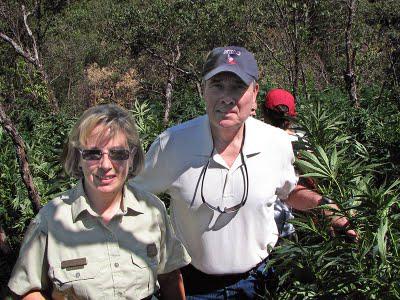
Drug War goes international in a big way.
Gil Kerlikowske, Director of the Office of National Drug Control Policy--a.k.a. the Drug Czar--finds himself in a curious position. Kerlikowske can be forgiven for feeling a little like J. Edgar Hoover, when the FBI director found that domestic security at home seemed to require some rather active investigations into Cubans and other Communists abroad. Kerlikowske is now riding a horse he never had much say in buying. The U.S. is in the midst of launching a new international drug strategy consisting of “interlocking plans” in Central and South America aimed at “transnational criminal groups.”
AFP reporter Jordi Zamora wrote that “the strategy will merge a handful of existing programs, including Plan Colombia, which has received more than $6 billion in U.S. aid since it was launched in 2000, and the Merida Initiative for Mexico, for which Congress has appropriated $1.5 billion since 2008.” Kerlikowske said that the global nature of the drug threat “requires a strategic response that is also global in scope.” With various crackdowns and battles over smuggling routes, the drug trade in the region has led to thousands of deaths, and has created “complex and evolving threats” from crime syndicates,” according to Assistant Secretary of State William Brownfield. However, “progress in Central America will only push drug traffickers elsewhere if we do not support strong institutions throughout the hemisphere,” he said. It seems like the Office of National Drug Control Policy continues to be internationalist in scope.
With all that as background, Foreign Policy magazine spoke with Kerlikowske in search of more detail, and got some--including a strange paean to America’s ability to produce and distribute its own illegal drugs, with no help from Mexico, thank you very much. Kerlikowske seems almost to be bragging. And if he’s right, what are all those border killings about, anyway?
FP: What's your big-picture sense of the drug situation in Latin America?
GK: It used to be fairly easy to categorize countries as production countries, transit countries, or consumer countries. I think those lines have been--if not completely obliterated--generally blurred. The amount of drug use in Mexico is significant. It's also clear from my most recent trip to visit drug treatment centers in Colombia that they're concerned as well.
FP: U.S. Ambassador Carlos Pascual was forced to leave his position in Mexico two weeks ago because of comments he made in WikiLeaks cables about the perception that the drug war in Mexico is failing and about pervasive corruption in Mexican law enforcement. Are those concerns you share?
GK: As a police officer, I can say that cynicism just comes with the territory, and it's pretty easy to adapt that kind of attitude to Mexico. I'm not overly optimistic, but I think there has been some progress and we have an administration that's courageously taking on these criminal organizations, who are now involved in so many other kinds of crimes.
FP: It does seem that there have been a number of recent scandals involving U.S.-Mexico drug partnership: the Pascual resignation, the reports of the ATF allowing cross-border gunrunning, the controversial use of drones over Mexican territory. Has that relationship become more difficult lately?
GK: In my two years of dealing with this on a closer level, I'd say these last two months are more strained than during the rest of the time I've been here, but I don't see it as a significant bump in the road or a glitch that's going to stop things.
FP: What do you say to those in Latin America who say that it’s useless to crack down on the drug trade as long as the demand persists from the United States?
GK: For one thing, we've become much better at producing drugs in the United States: hydroponic marijuana with a very high THC content -- public lands produce a lot of marijuana. And we don't get any prescription drugs smuggled in to any great extent--which, right now, are our No. 1 growing drug problem in the United States, and also methamphetamine. We're getting much better at making our own, albeit in small amounts.
FP: How do you respond to the growing number of former Latin American leaders--former Mexican President Vicente Fox, most recently--who have come out in favor of legalization or at least a radical overhaul of the current policy?
GK: Isn't it funny how people who no longer have responsibility for anyone's safety or security suddenly see the light? I think it's not a lot different from what we've heard in recent years in the United States, which is: We've had a war on drugs for 40 years and we don't see success. If we have a kid in high school, they can still get drugs or there's drugs on the street corner. So legalization must be an answer…. Heaven knows, we're not very successful with alcohol. We don't collect much in tax money to cover the costs. We certainly can't keep it out of the hands of teenagers or people who get behind the wheel. Why in heaven’s name do we think that if we legalize marijuana, we'd have a system where we could collect enough tax revenue to cover the increased health-care costs? I haven't seen that grand plan. “
Photo Credit: www.fs.fed.us

